'Hollywood' Isn't for the Critics. It's for the People Who Never Felt Seen
Ryan Murphy spoke with Marie Claire about the inspiration behind his polarizing Netflix show.
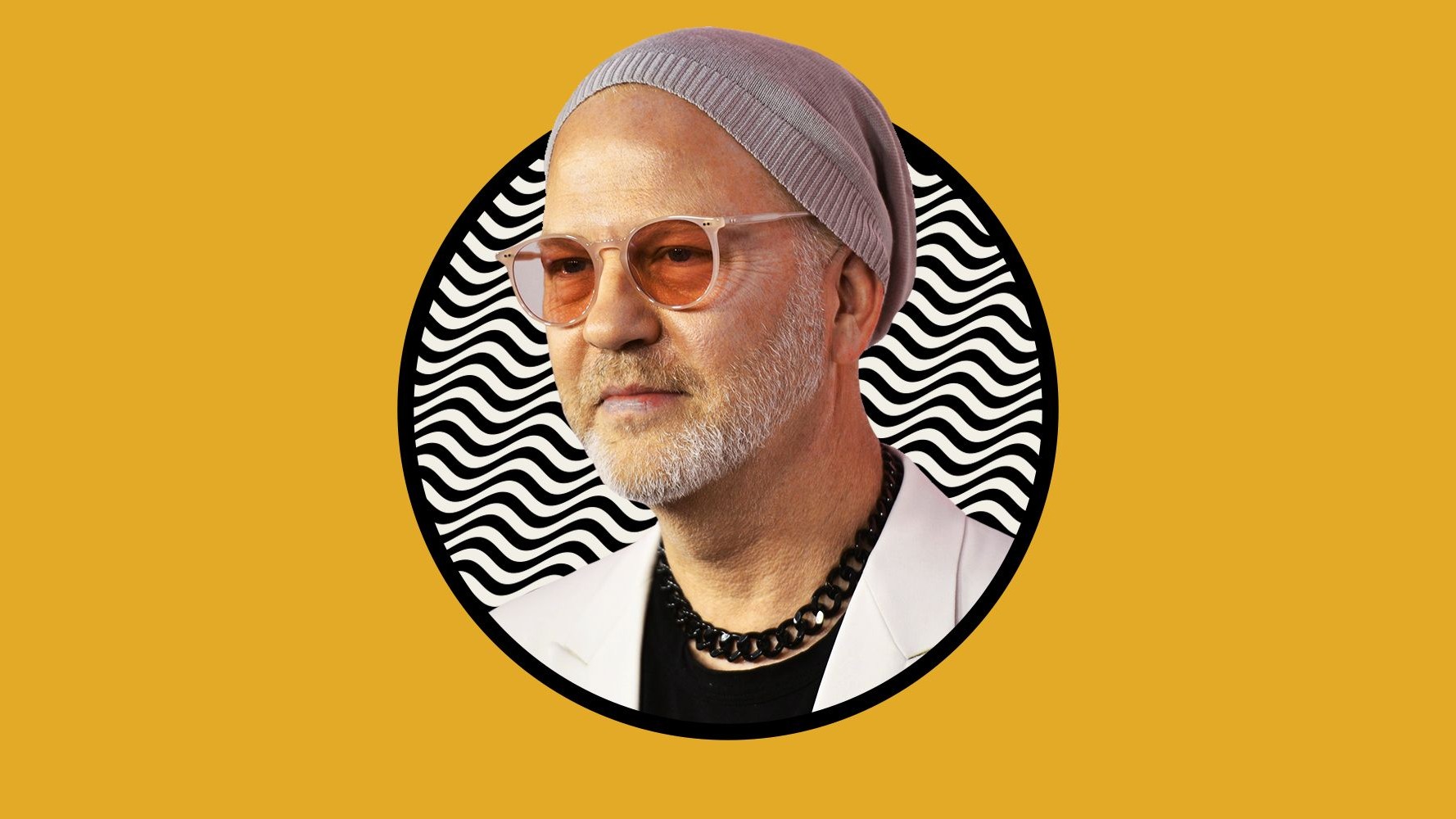
If Hollywood is a place where dreams come true, then watching Hollywood, Ryan Murphy's latest Netflix production, is like floating in a perpetual dream. The seven-episode series, which hit the streaming service on Friday, is a razzle-dazzle revisionist history of Hollywood's Golden Era. It's a place where the underdog wins and villains grow hearts and people in charge have consciences—which is to say, a lot of people will hate it. Hollywood is only for the optimists.
The show's almost Disney-like reframing of the entertainment industry's past (and often present) has incited critics and polarized early viewers. And it's true that, at times, Hollywood becomes self-righteous and navel gaze-y and precious in its momentous, symphonic declarations about the power of film. Its rose-colored glasses worldview makes even prostitution seem glamorous. (Fitting then, that characters literally ask to go to "Dreamland" when courting gas station attendants moonlighting as gigolos.)
But it's also moving. And sweet. And tells the kind of stories you wish were made, ones that exist in your wildest dreams.
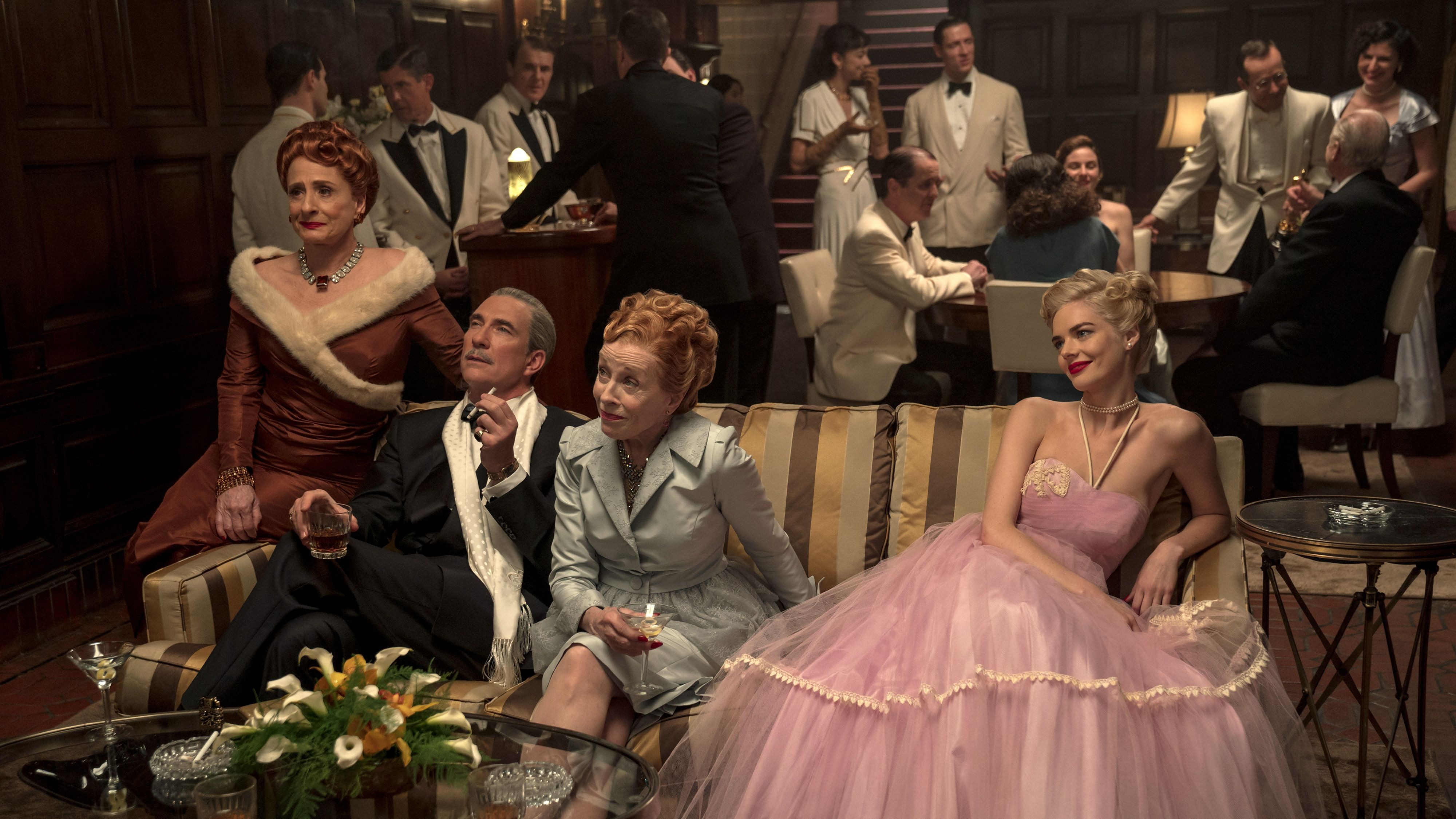
The Hollywood ensemble attend an award show.
In the show, Murphy and coproducers Ian Brennan and Janet Mock follow several industry players (some real and some imagined), from wannabe stars to narcissistic agents to weathered studio execs, attempting to get a movie made. Their fates rest on the shoulders of people who simply need to believe in the power of the industry to change—an industry that in the historical 1940s forced women, people of color, and gay people out of the limelight. Where history failed film trailblazers, Murphy gives them their chance to shine.
Before the show's premiere, Murphy chatted with Marie Claire about the personal stories that inspired the show's creation, his own fairy-tale industry beginnings, the career he'd have in another life, and how he hopes to "leave a legacy of inclusion and diversity" on Hollywood.
Marie Claire: The show has been billed as your love letter to Hollywood but there are many moments that leave viewers still disillusioned about the industry. What do you want the viewers to take away from this show? Is it supposed to be a fantasy? Commentary?
Ryan Murphy: I think it's a very hopeful show. It's about the power of change. [It's] something that I really believe in: If you see it, you can become it. I think for many people, me included, growing up, we never saw ourselves or our lives projected in any way into entertainment. Janet Mock and I talk about that all the time. So this show is about a group of people who want to change that and take on the system. While Hollywood I think is very flawed for sure, and every year we seem to be caught up in an #OscarsSoWhite dilemma (along with every other award show, I don't think it's just the Oscars), I think what this show really does is say how much good Hollywood has the potential to do by broadcasting and showcasing certain images, certain people, who many times are marginalized. I think sometimes when Hollywood is able to focus on the ignored, it gives a lot of hope to people who also feel ignored.
Get exclusive access to fashion and beauty trends, hot-off-the-press celebrity news, and more.
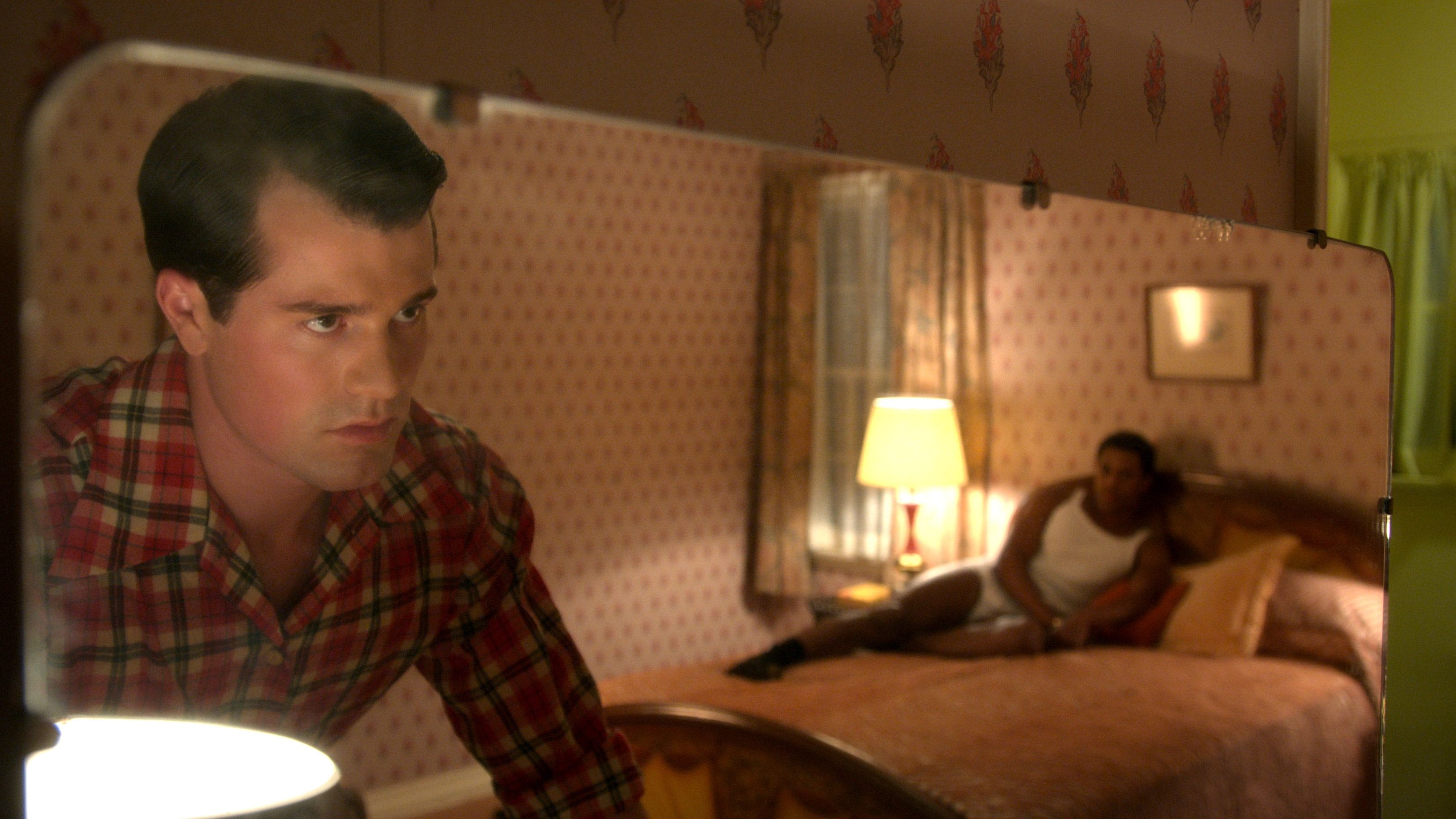
Rock Hudson (Jake Picking) and Archie Coleman (Jeremy Pope) share their dreams for Hollywood success.
MC: I hear what you're saying. I watched a lot of Bollywood movies growing up because I didn't see people like me in American media. It's interesting to think What if that had that been available?
RM: I felt that when I was growing up too. I was obsessed, almost, with three people: Rock Hudson, Anna May Wong, and Hattie McDaniel—once you get into episodes 5, 6, 7 all of those stories collide. Particularly Rock Hudson was very interesting to me because even in Indiana in the '70s I heard people talking about how he was gay, and Confidential Magazine would run snippy things about him. And I think if those three people were allowed to be who they were and celebrated for who they were and allowed their chance at the table, I think it would've made a big difference for a lot of people.
MC: What was it about those people you found so captivating? And did you create this show specifically to tell their stories, or did the concept come first and then you realized this was your chance to highlight who they were?
RM: I was always obsessed with the Golden Age of Hollywood. I think largely because of my grandmother, who showed me a lot of movies and gave me a lot of books [about it]. It wasn't until I got older and I started in Hollywood that I realized why: It was because all three of those people had something in common, which was that they were fighting to be seen, and I felt that way. They were all underdog stories and, tragically, they all had bad endings. They never had peace. They always had to live a lie. So I think right around the time I was doing Feud, I thought, Well, my next Hollywood thing that I'll do is something about this buried history—these three people.
And then Darren Criss and I were talking and were very interested in the gas station idea which also was about shame. People back then, many of them, had to go to private parties or go to this gas station and hire people so they could live some degree of sexual satisfaction. So I was not so much as interested in the sex as I was, Oh, here's another example of shame and people not allowed to be who they want to be. And all of those ideas came together at once, which I think is common for me. Sometimes I'll work on something for several years—American Horror Story was five years before it went to pilot—it takes a while for things to come together until I figure out what I really want to say. I like things gestating.
[image id='27974a6a-1437-4d8a-844e-8157f7a27316' mediaId='96d220ae-7978-4a37-aa10-e1ad10c45a9c' align='center' size='medium' share='false' caption='Anna May Wong (Michelle Krusiec) and Camille Washington (Laura Harrier) pose together at an award show. ' expand='' crop='original'][/image]
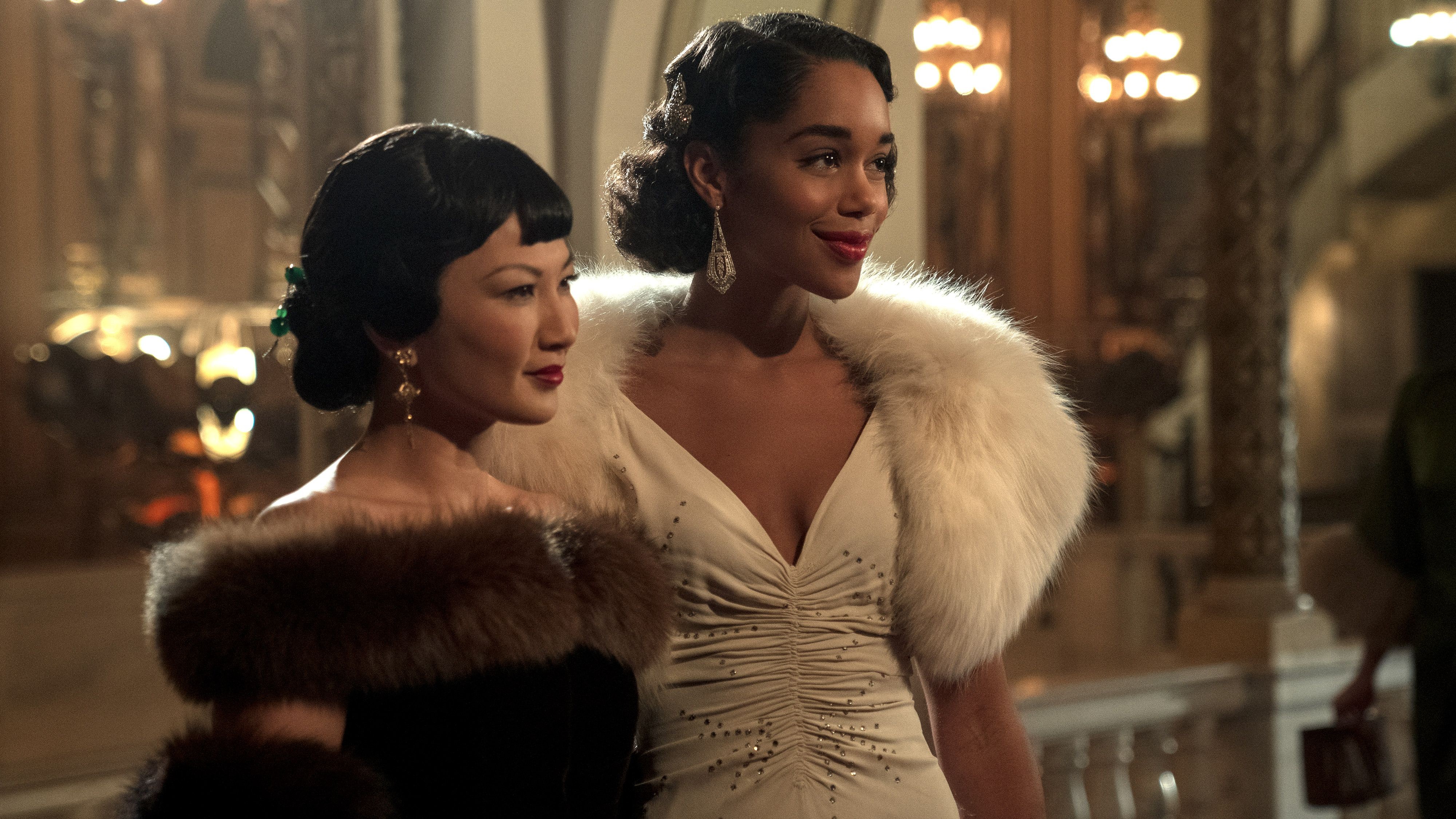
MC: What are some of the movies your grandmother introduced you to that made you fall in love with the Golden Era?
RM: I was a big Rock Hudson fan. When I was little there was a show called McMillan & Wife that I would watch. From there, I watched Giant and then I became obsessed with the Rock Hudson-Doris Day movies. I really loved, when I was a child, Hattie McDaniels' performance in Gone With the Wind and Vivien Leigh's too. I think the movie is terribly flawed, obviously, but there's something about those two women that I always thought was interesting. I discovered Anna May Wong vis-à-vis some film she did with Marlene Dietrich. And she was so good, but marginalized, so again all of these people that I'm interested in writing about are marginalized figures that I put at the center of the story and let them, sort of, have the happy ending I think we all wish they had. And we get to mix it up with fictionalized people to tell a story about empowerment and hope.
MC: Tell me more about the gas station storyline: Was it your way of flipping the script on the casting couch and providing some type of commentary on #MeToo?
RM: A lot of the characters are based on real people, even if they are fictionalized, so a lot of it is based on research about that gas station. Specifically, the thing I was really interested in showcasing was the Rock Hudson story and the Rock Hudson manager, played by Jim Parsons. Henry Wilson was one of the great Hollywood monsters, and what he did to Rock—not just the sexual abuse, but also literally making Rock Hudson feel like he had a bad smile and pulling every tooth out of his head—there was a certain level of degradation and control. That was definitely a part of the Rock tragedy. He had such low self-esteem because he came from a broken home and that's a very common story. Many people come out here and are broken and come from hopeless situations and they are taken advantage of by predators. But also that gas station, it wasn't all villains who went there. A lot of that story was about loneliness and sexual liberation for many people.
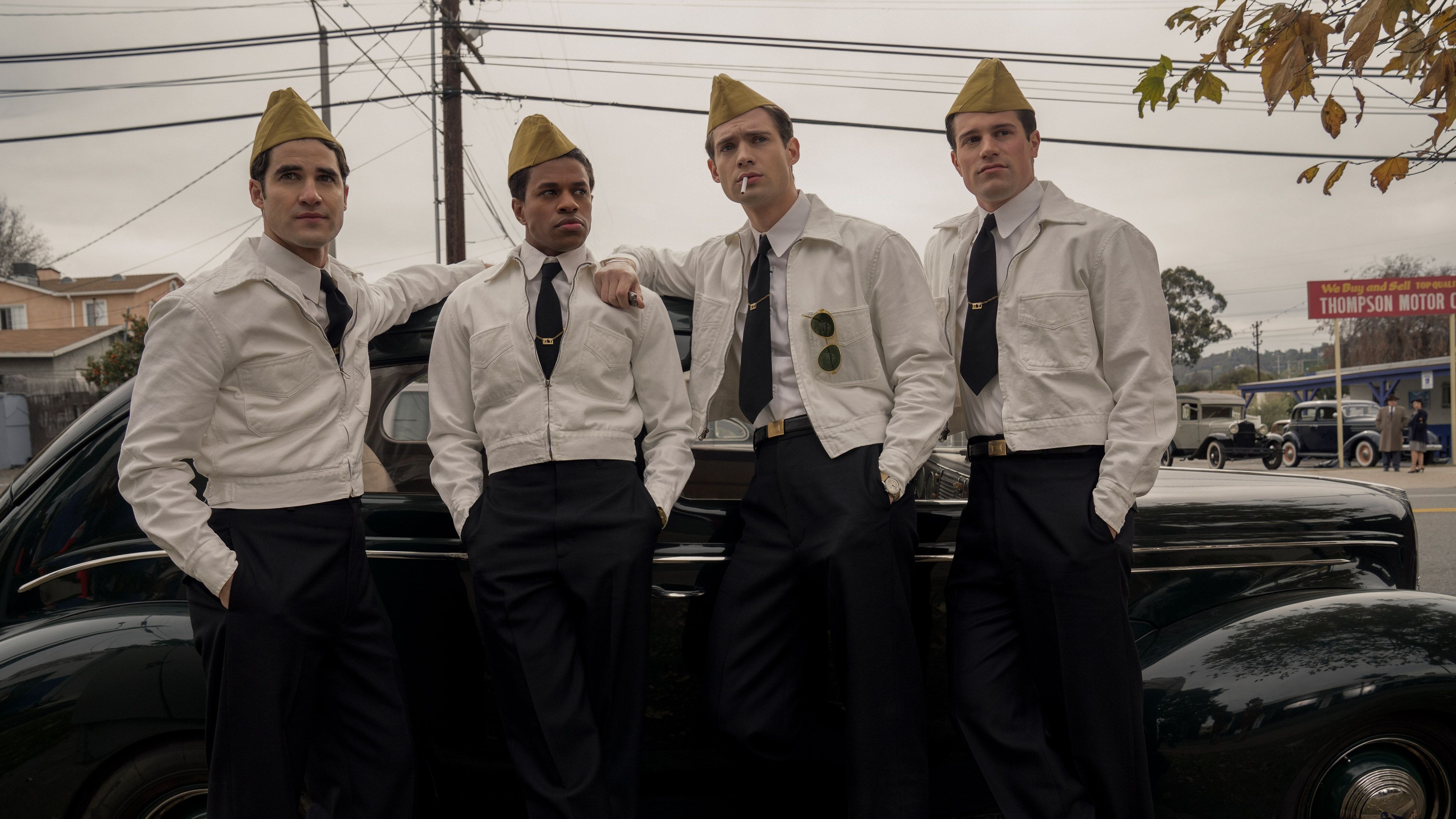
Raymond Ainsley (Darren Criss), Archie Coleman (Jeremy Pope), Jack Castello (David Corenswet) and Rock Hudson (Jake Picking) work at Ernie’s gas station.
MC: If the real people from your show could see where the industry is now, how do you think they would feel? Proud of the progress that has been made or that it's still inherently flawed?
RM: I think all three of them would be shocked. Rock Hudson, particularly, would be shocked that there's a world that now exists where you can be an out male gay actor and work, because when he died in the mid-'80s you could not do that. And I think the same with Anna May Wong and Hattie McDaniel. I think they would be proud but shocked that things are changing. Anna Way Wong would've been so thrilled with this year's Oscars, with Parasite winning everything.
I think it's all so sad and tragic. That's the thing always that I'm drawn to; I think the most tragic thing in life is untapped potential. So while I think those three people would be very proud of the progress, I think they'd be somewhat devastated that they never got to show everything that they were.
[When I was young,] I felt so alone in the world. I really felt alone, like I was some weird alien. Hollywood teaches us everything. TV and movies, it teaches us how to walk and talk and dress and fall in love and kiss and all that stuff. And I just remember thinking, There's nobody like me so something must be wrong with me. So my mission in my career has been to put images in front of you, characters in front of you, that you can relate to, particularly if you feel vulnerable and like you're not seen. I had an easy introduction, but I had 15 years of difficult, really really hard times, trying to get stories made. And finally I had so many successes that I got green-light power. I was fortunate, and I know that, and I try and use my "power" to do good and to leave a legacy of inclusion and diversity.
MC: You sound very much like your character Raymond Ainsley right now—that optimistic view of Hollywood. Is he based off of you?
RM: I think so. I related to so many of the characters. I related to Raymond when I was told that early on, If you do this, it's not going to be a hit. How do you know until you try? I really related to Jeremy Pope's screenwriter character in that I kept writing stuff because I thought it's going to be successful or commercial. I cannot tell you, how many "Sandra Bullock romantic comedies" I would try to write just because they were popular and I thought it would get me in the game. And it wasn't until I started writing personal things that my life changed. So I really understood his dilemma.
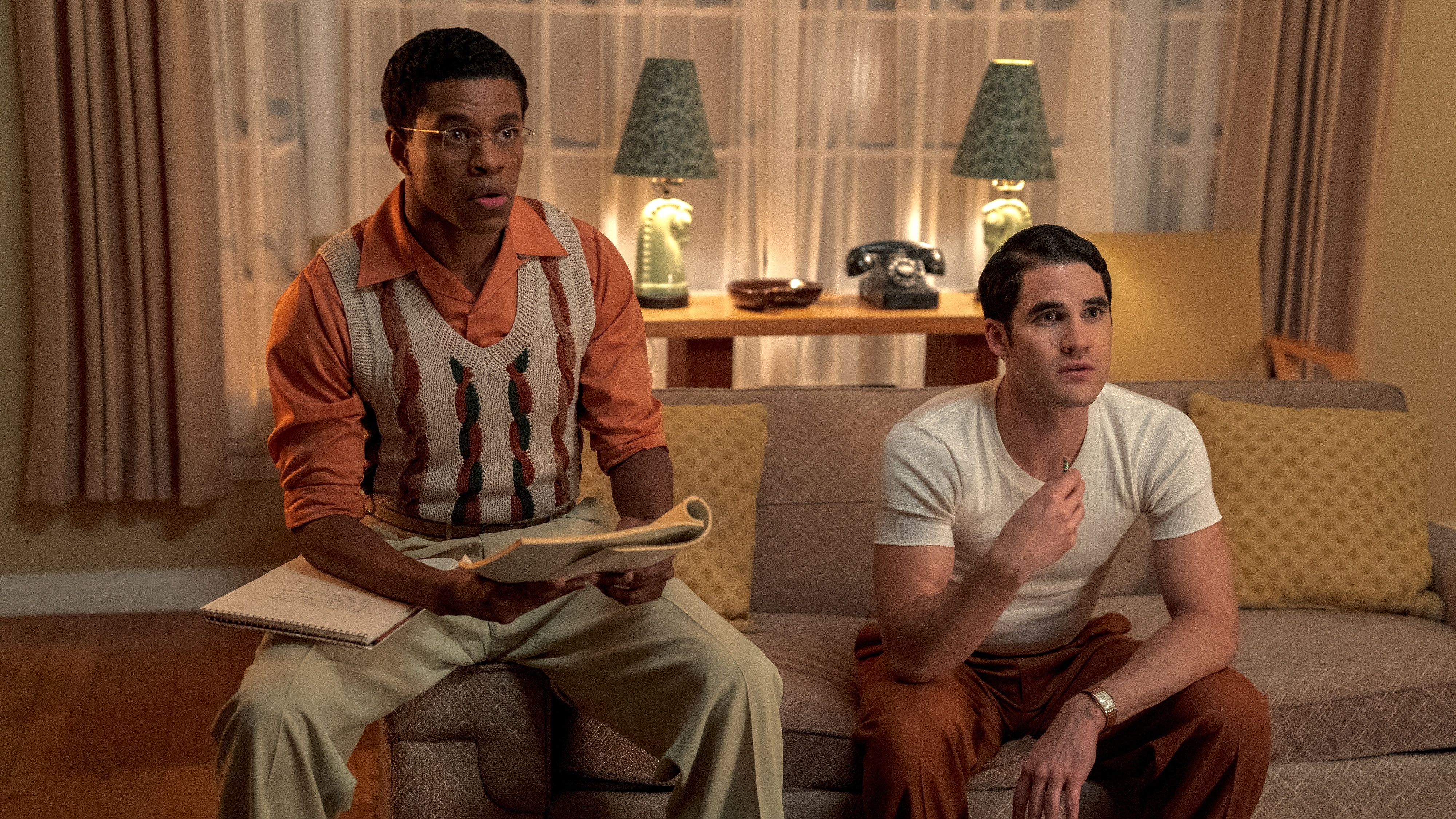
Screenwriter Archie Coleman (Jeremy Pope) and director Raymond Ainsley (Darren Criss) work together on a script.
I also really understood the dilemma of Patti LuPone's character, where you know what is the right thing to do but sometimes you're afraid that if you go too far out on a limb you'll lose all your cache and you'll lose all your success. And also the Dick Samuels character: I felt his dilemma of trying to hide my sexuality a little bit when I was starting off because I thought I could get in the "boy's club" easier. All of the people around me were white straight guys in their 40s and 50s, and I remember that feeling of hiding within my own skin and how painful that was.
MC: You've consistently proved, throughout your catalog of shows, to be an expert in world-building—the look and the fashion of it all. How does that all come together?
RM: It's very important to me. I go into every project with "everything has to work hand-in-hand." Usually, I have a very early meeting with the [director of photography], the costume designer—my longterm [collaborator] Lou Eyrich, who I've worked with since Popular, over 22 years—and the production designer. And I'll have all the other writers and producers in [it]. And I'll be very specific: This is the color palette. These are colors we will use and these are colors we will not use. So if you look at Hollywood, I was very interested in that literal "golden era": sunset, tinge of amber, the sun setting and a happy ending; a very romantic view of what the California sun looks like. The project before, which is coming out in September, Ratchet, very specifically paid homage to 1940s Hitchcock colors, like blue and aquamarine, and we used none of that in Hollywood.
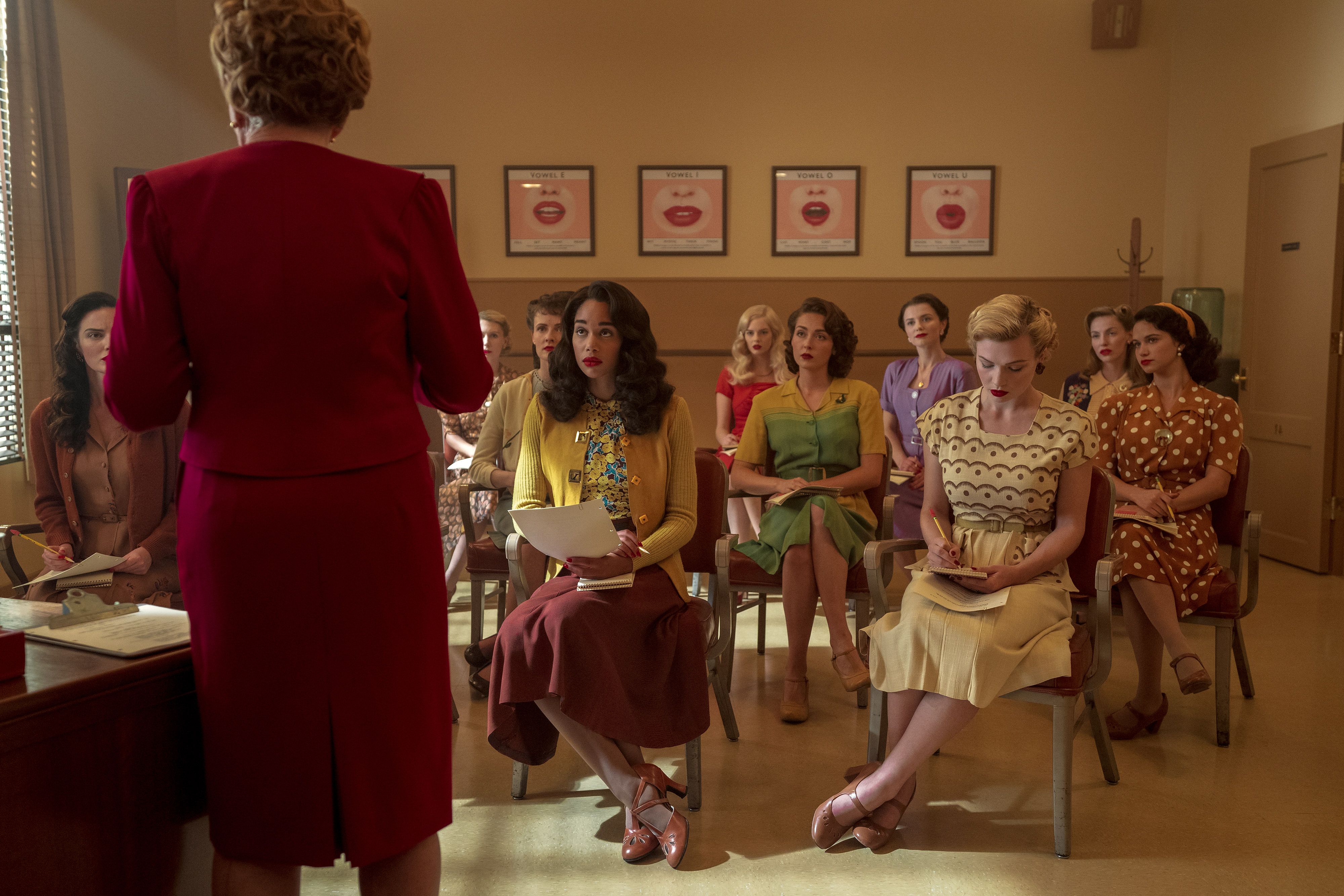
Camille Washington (Laura Harrier) and Claire Wood (Samara Weaving) take an acting class at Ace Studios.
Hollywood was a very expensive show because we had to make everything. It was very hard to find those clothes now and almost impossible to find those sets. We wanted to be very true to the period. So I am really involved in that, and it really matters to me. I approve every piece of clothing. I approve every piece of drapery. But what I'm interested in, even though I have this big control—I do what I do because I do like to create a world—I'm very always interested in what my collaborators have to bring to the table. And many times they fight me on stuff, and they'll say, No, this is wrong and sometimes they'll win.
I'm obsessed with design if I wasn't doing what I'm doing I would be an architect, because that's the thing I really love: the creation of space and spaces. So I think my work is infused with all of that.
MC: Is there going to be a season two? And if so, are there any other Hollywood icons or trailblazers whose stories you hope to highlight?
RM: I can honestly say—unlike American Crime Story or American Horror Story where it was an anthology—when I created this I really wanted to do a limited series and I really only wanted to do these seven episodes. So right now my answer would be "No." But if it does really well and people love it and maybe if I can keep selling this message of what the show's about, then maybe I would consider it.
This interview has been edited and condensed for clarity.
For more stories like this, including celebrity news, beauty and fashion advice, savvy political commentary, and fascinating features, sign up for the Marie Claire newsletter.
Related Stories
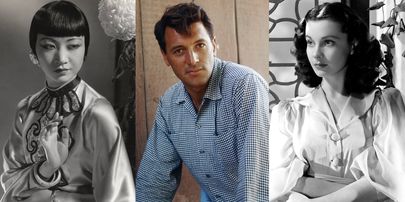
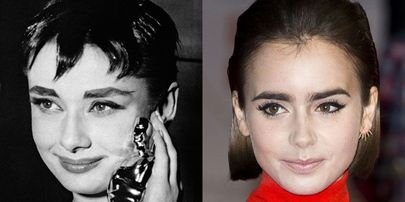
Neha Prakash is Marie Claire's Entertainment Director, where she edits, writes, and ideates culture and current event features with a focus on elevating diverse voices and stories in film and television. She steers and books the brand's print and digital covers as well as oversees the talent and production on MC's video franchises like "How Well Do You Know Your Co-Star?" and flagship events, including the Power Play summit. Since joining the team in early 2020, she's produced entertainment packages about buzzy television shows and films, helped oversee culture SEO content, commissioned op-eds from notable writers, and penned widely-shared celebrity profiles and interviews. She also assists with social coverage around major red carpet events, having conducted celebrity interviews at the Met Gala, Oscars, and Golden Globes. Prior to Marie Claire, she held editor roles at Brides, Glamour, Mashable, and Condé Nast, where she launched the Social News Desk. Her pop culture, breaking news, and fashion coverage has appeared on Vanity Fair, GQ, Allure, Teen Vogue, and Architectural Digest. She earned a masters degree from the Columbia School of Journalism in 2012 and a Bachelor of Arts degree from The Pennsylvania State University in 2010. She lives in Manhattan with her husband and dog, Ghost; she loves matcha lattes, Bollywood movies, and has many hot takes about TV reboots. Follow her on Instagram @nehapk.